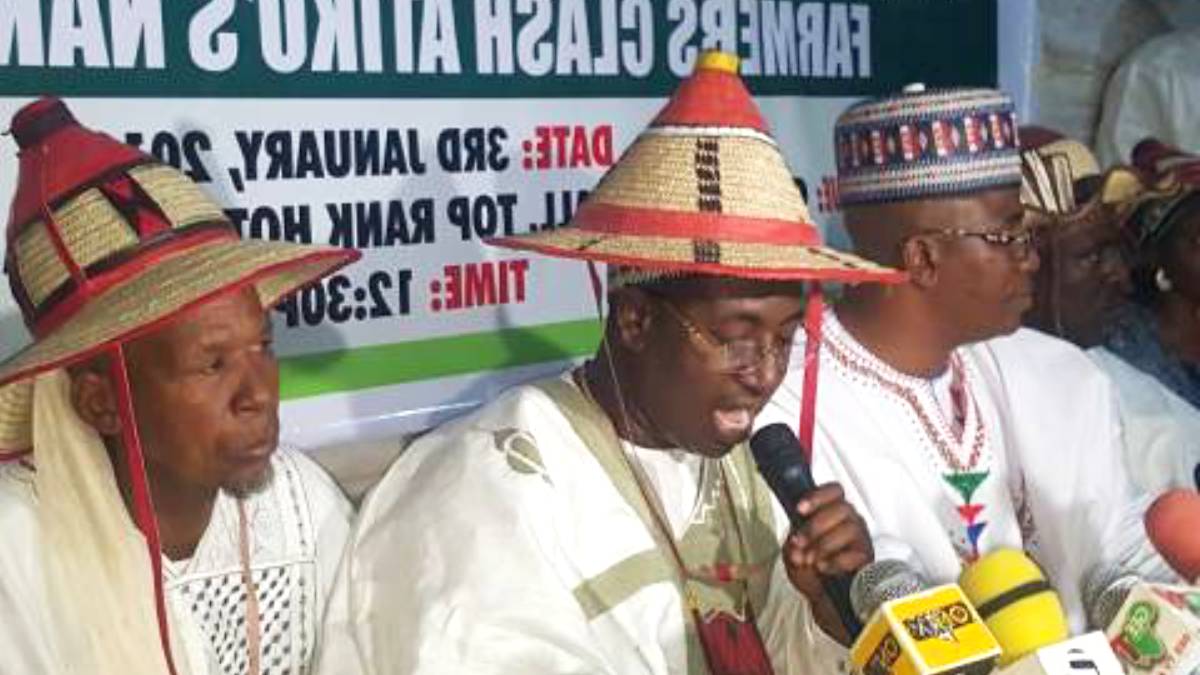News
Nigeria spends $1.7bn annually on milk importation — Miyetti Allah

The Mi-Yetti Allah Cattle Breeders Association of Nigeria (MACBAN) has called for adequate budgetary allocation to boost the livestock economy.
Baba Ngelzarma, National President of the association, made this appeal in an interview with newsmen on Sunday in Abuja.
Ngelzarma said it was disturbing that the nation spent more than 1.7 billion dollars annually on milk importation due to poor attention given to the livestock sub-sector.
He said that there was no budgetary allocation for livestock while agronomy always gained priority attention annually in terms of robust budget.
“The livestock sector has not and never received the needed attention from the government; the only support we have gotten is vaccination of cow.
“The aspect of livestock production, marketing, transportation, processing among others is left in the hands of the pastoralists; the entire value chain of cattle is not harnessed by the government.
“Nigeria has the largest population of livestock compared with neighbouring countries; yet we produce lesser milk due to neglect of the sector.’’
He said that if the sector was accorded due attention, the nation would be the hub of milk exportation as well as other value chain in livestock.
Ngelzarma said that cattle business in the country at the moment was doing the little it could to stimulate the economy.
He said that when given the deserved attention, it would contribute immensely to the agricultural Gross Domestic Product (GDP).
On the state of livestock sector in the country, Ngelzarma frowned at the poor attention given to the sector by the government.
He said that it was not right that every attention was channeled towards the agronomy sector while issues regarding livestock were left unattended to year in year out.
The MACBAN president called on the government to give due attention to livestock subsector of the economy to boost the nation foreign income.
“If the sector is well harnessed, it can unlock a lot of employment opportunities in the country considering its huge investment, foreign exchange among others.’’
Speaking on ranching, Ngelzarma said it would be difficult to practice ranching in the country.
According to him, such model is alien to pastoralists in the country since it is borrowed from foreigners.
He said the model could not suit the peculiarities of pastoralists in the country who were primitive adding that they still roamed about while seeking for pasture.
He explained a number of the pastoralists in the country were not educated adding that between 70 per cent and 80 per cent were smallholder farmers that could not afford ranching because it was capital intensive.
According to him, they are nomadic farmers that are used to open grazing system, and lack training on modernisation.
Ngelzarma said for ranching to succeed in the country there was need for adequate funding.
He recommended a model that suited the peculiarities of the pastoralists such as transforming the grazing reserves into community ranching.
The MACBAN president suggested that the entire ranching should be fenced in order to prevent the pastoralists from straying out of the vicinity while in their traditional settings.
He further said such model would involve the development of grazing reserves, provision of accommodation and training of the pastoralists to propagate pasture within and create a sense of ownership in them.
According to him, this will ensure a sustained maintenance while facilities such as veterinary clinics, milk processing centres and markets can be provided within the reserve.
“All pastoralists in the reserve will be registered to know the capacity of such reserve and every local government across the nation will be encouraged to have one or more community ranches to accommodate pastoralists living within their domain.
‘’This will make it easier for every state and local governments to know the number of pastoralists living within their domain for effective supervision.
‘’It will also enhance revenue generation from pastoralists, Livestock registration and other value chain benefits.
“The ranching concept that was introduced under the Livestock Transformation Plan is not one that will solve the problem.
“We need a model that can suit the peculiarities of the pastoralists that we have.
“This is because we have pastoralists’ society that is not educated. We need a simpler model that can suit their peculiarities.
“These pastoralists are doing cattle business as a business and as a way of life, and most of them are smallholder farmers who have not more than 20 or 30 cows in their herds; this is their only source of livelihood,’’ he said.






